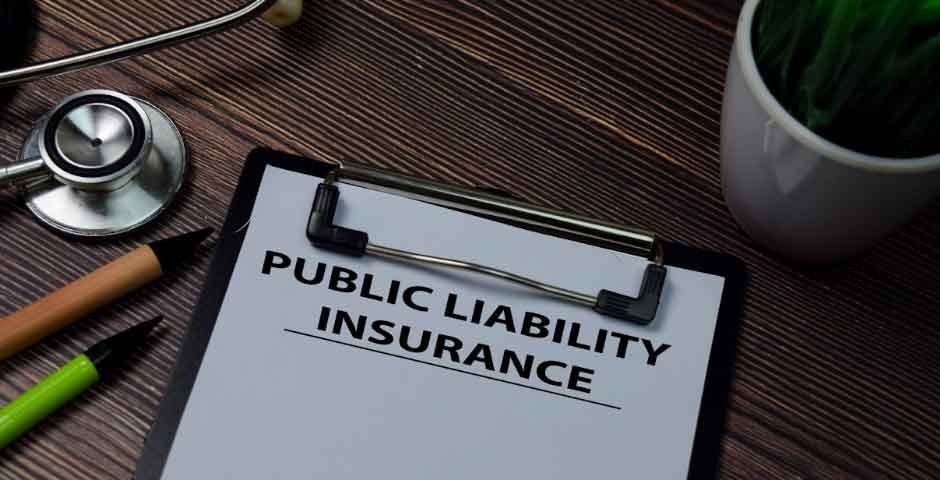In the complex landscape of business operations, public liability insurance stands as an integral element. This form of insurance functions as a protective barrier, defending businesses from significant compensation claims and legal fees if they’re found responsible for injury or property damage to a third party.
However, understanding and selecting an insurance policy suitable for potential public liabilities can be daunting. This is where the expertise of insurance brokers becomes invaluable. These experts, with their comprehensive knowledge of the nuanced insurance industry, can guide businesses toward the ideal coverage catering to their unique needs and industry demands.
With this foundation laid, read on to dig deeper into why every business, regardless of size or domain, should consider investing in public liability insurance.
1. Minimizing Financial Risk
In the commercial sphere, risk is a constant companion. You execute strategic decisions with the anticipation that they will yield successful outcomes. But what about risks beyond your control? This is precisely where public liability insurance becomes crucial.
There’s a well-known adage that says, ‘Expect the unexpected.’ It couldn’t be more relevant when it comes to running a business. Accidents happen. And when they do, they can result in substantial financial ramifications. These can range from legal fees and compensation payments to medical costs.
To illustrate this, imagine a customer getting injured within your store premises, setting off a likely personal injury lawsuit. Without insurance, you’d have to shoulder these costs yourself. That financial burden can severely strain your business, even leading to bankruptcy.
Public liability insurance acts as a financial buffer in these situations. It covers the costs associated with such claims, lessening your out-of-pocket expenses. It safeguards your business savings or profits, offering a level of financial resilience that bolsters your business in times of potential crises.
2. Building Trust With Clients And Stakeholders
You’ve heard it before, ‘trust is earned, not given.’ In the realm of business, this saying certainly holds true. Here’s where public liability insurance can be a game-changer. It’s more than a policy—it’s a testament to responsibility.
Think about it: your clients and stakeholders want reassurance. They want the confidence that you’re ready for unexpected incidents. Having public liability insurance sends a strong message, declaring, ‘We’re accountable. We’re equipped to handle any mishaps with professionalism.’
Securing insurance also signals that you value safety. It’s a clear indication that their well-being matters to you and that you’ve taken steps to ensure that, if something goes wrong, you can make it right. This proactive stance plays a key role in building trust.
This trust not only benefits customers but also allows stakeholders to appreciate businesses that proactively minimize risk. It reassures them that their investment is in responsible hands. This trust can be pivotal in fostering enduring relationships.

3. Fulfilling Lease Agreements And Contracts
Entering into business contracts often involves meeting a checklist of prerequisites. More often than not, public liability insurance is one such requisite. It’s not a discretionary choice—it’s a regulatory necessity.
Consider this: you’re on the brink of signing a lease for your new office space. The landlord presents the contract. As you review it, you see that they require tenants to have public liability insurance. This requirement is quite common. Many landlords and clients include this as a protective clause.
This stipulation provides them with peace of mind. It assures them that potential claims won’t affect your capacity to meet your obligations. They understand that the insurance will cover the costs if an incident occurs. It’s a safety net for them and a compliance mandate for you.
Compliance is not just about fulfilling requirements. It’s about fostering smoother business relationships. Having public liability insurance can simplify contract negotiations. It removes potential hurdles, facilitating an easier path to agreement.
4. Protecting Businesses In High-Risk Industries
Specific sectors, such as construction, hospitality, and retail, carry an inherently higher risk, often likened to a tightrope walk. In these industries, public liability insurance is not just a suggestion—it’s an indispensable safeguard.
In such high-risk sectors, interactions with the public are frequent, and each encounter harbors potential risk. Accidents are a reality; when they occur, they can trigger substantial claims. Without insurance, the financial impact can be debilitating.
Visualize running a construction company. You recognize that despite your stringent safety protocols, on-site accidents can occur. With public liability insurance, you can attain peace of mind. Should an accident occur, your insurance will shoulder the costs.
However, the benefits are not limited to financial protection for your business—it’s also about preserving your reputation. An accident can mar your business image, but a swift, professional resolution can temper that damage. Insurance can facilitate that response.
Conclusion
Fundamentally, public liability insurance isn’t about bracing for the worst. It’s about equipping for realities that may surface in any business environment. It fortifies your business, enabling it to remain resilient amidst unexpected setbacks. It also fosters trust, a critical foundation for any thriving enterprise.
So, empower your business with the right insurance plan and embark confidently on your business journey. Armed with adequate protection against public liabilities, you’re prepared to navigate any challenges that arise.






